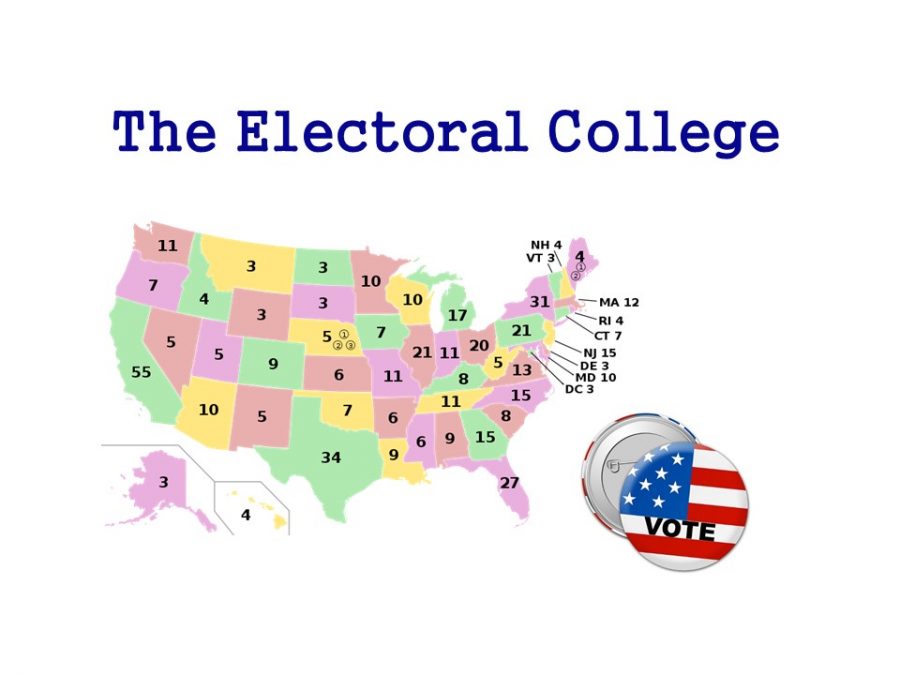Popular vote doesn’t pick president, Electoral College does
IMAGE / Mr. Darrick J. Puffer / Wikimedia Commons / pixabay
The 2016 Electoral College Map
After Democratic candidate Hillary Clinton received more popular votes than Republican candidate Donald Trump in the 2016 presidential election but lost the election due to the Electoral College, many supporters of both sides are left to question whether the Electoral College has a place in modern elections.
The Electoral College was created by our Founding Fathers to prevent the swaying of an election based on uneducated voters.
But many people find the system confusing. According to Mr. Andy Nester, political science teacher, students need to know why the Electoral College was created.
“Without that knowledge, when a candidate loses the popular vote, but wins the Electoral College, people see that as unfair,” Nester said. “It would take a constitutional amendment to change it. Someone would have to research the reason for the Electoral College, and then begin the process of trying to start a constitutional amendment.”
With advancements in media and communication, Americans receive more information about candidates than ever before. Therefore, some people question the need to still have the Electoral College.
Freshman Grant Sterling feels the Electoral College isn’t needed.
“The Electoral College is just undemocratic at this point,” Sterling said.
This isn’t the first election where a candidate won the popular vote but lost due to the Electoral College. In 1824, 1876, 1888, and most recently, 2000, one candidate won the popular vote but lost the Electoral College, losing the election.
However, senior Dylan McIntire feels the Electoral College is needed.
“The Electoral College is needed because it is a secondary measurement to make sure all votes count,” McIntire said.
The Electoral College was created to balance out small and large states in an election so the election would reflect the views of the people. Small states, which tend to lean toward the Republican side, can be valued in an election because of the Electoral College.
In 2000, Republican candidate George W. Bush won the Electoral College, while Democratic candidate Al Gore held the majority in the popular vote by almost 500,000 votes. Because of the Electoral College, Bush won the election, becoming the 43rd president of the United States.
The Electoral College is a key part of the U.S. election process, and has always determined the nation’s president.
As the 21st century continues, it’s possible that the country may change the voting process, just as it did in 1804 when it changed the way the vice president was elected.
If the Electoral College was eliminated, the popular vote would likely be the only process that determined the presidential election.
In order to change the process of voting, 38 states would have to approve a new format, or eliminate a previous method.
But it would only take 13 states, no matter their size, to stop a proposed change. Therefore, it would be difficult for the process to change.

Class: Senior
Hobbies: I participate in quiz bowl, chess, robotics, Future Problem Solving, and many other "nerd sports."
Future Plans: I plan to...





